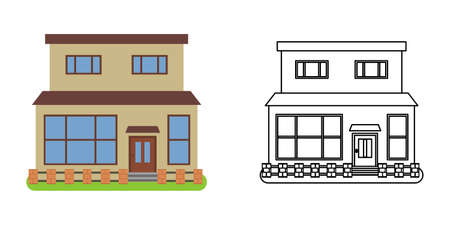Introduction to Plumbing Costs in the UK
For homeowners across the UK, understanding the cost of plumbing repairs is essential for maintaining a safe and comfortable living environment. Plumbing systems are at the heart of every property, ensuring a reliable supply of water and effective drainage. Over time, issues such as leaking taps, burst pipes, blocked drains, or malfunctioning boilers can arise, each requiring timely attention to prevent further damage or disruption. The costs associated with these repairs can vary significantly depending on factors such as location, the complexity of the job, and whether emergency call-outs are needed. Given these variables, having a clear understanding of local pricing not only helps homeowners budget appropriately but also ensures they avoid being overcharged for essential services.
2. Factors Influencing Plumbing Repair Costs
When it comes to plumbing repairs in the UK, several key factors can affect how much you’ll pay for a job. Understanding these variables can help you budget more accurately and avoid unexpected expenses.
Location Matters
Where you live plays a significant role in the cost of plumbing services. For example, rates in London and the South East are typically higher than those in the North or rural areas due to increased living and business costs.
| Region | Average Hourly Rate (£) |
|---|---|
| London & South East | £80 – £120 |
| Midlands | £60 – £90 |
| Northern England & Scotland | £50 – £75 |
Complexity of the Job
The nature and complexity of the repair will also influence costs. Simple jobs such as fixing a leaking tap will be considerably cheaper than more involved tasks like replacing pipework or installing new fixtures. Jobs requiring access to hidden pipes or working within older properties may increase labour time and overall expense.
Emergency Call-Outs
If you require urgent assistance—say, for a burst pipe late at night or during a bank holiday—you can expect to pay a premium. Many plumbers charge an additional call-out fee for emergency services, which can sometimes double the standard hourly rate.
| Service Type | Typical Fee (£) |
|---|---|
| Standard Call-Out (Weekday) | £0 – £50 |
| Emergency Call-Out (Evenings/Weekends) | £100 – £200+ |
The Need for Replacement Parts
If your repair requires new parts—such as valves, pipes, or fittings—the price will go up accordingly. Some plumbers include basic materials in their quote, while others charge separately for every component used. It’s wise to request a breakdown of materials and labour before work begins to avoid surprises.
Summary: What Drives Plumbing Costs?
- Your location: Urban areas often mean higher rates.
- The job’s complexity: More challenging repairs demand greater skill and time.
- Call-out times: Out-of-hours work incurs extra charges.
- Parts and materials: Replacement items add to your bill.
By understanding these factors, UK homeowners can better anticipate what they might pay for plumbing repairs and make informed decisions when choosing a tradesperson.
![]()
3. Typical Price Ranges for Common Repairs
When budgeting for plumbing repairs in the UK, it’s essential to understand the average costs associated with frequent issues homeowners encounter. While prices can fluctuate depending on location, complexity, and time of day, the following table provides a general guide to help you estimate expenses:
| Type of Repair | Average Cost (Labour & Materials) |
|---|---|
| Leaky Tap Replacement/Repair | £60 – £120 |
| Burst Pipe Fix | £150 – £350 |
| Toilet Repair (e.g., flush mechanism) | £70 – £130 |
| Boiler Breakdown Repair | £100 – £500+ |
Factors That Influence Costs
The overall cost will depend on several factors, such as whether emergency call-out charges apply (often £100 or more), the accessibility of pipework, or if specialist parts are required. For example, a straightforward tap swap is typically at the lower end of the range, but additional pipework or complications can quickly increase costs.
Regional Price Differences
Plumbing services in London and the South East often command higher rates compared to other regions due to increased living and operational costs. It’s always advisable to request quotes from local tradespeople to ensure competitive pricing.
Unexpected Extras
Be mindful that some jobs may uncover further issues, such as water damage or corroded pipes, which could lead to additional repair expenses. Always ask your plumber for an itemised quote before work begins to avoid surprises.
4. Labour Charges and Call-Out Fees
When assessing the overall cost of plumbing repairs in the UK, understanding how labour charges and call-out fees are structured is crucial. Most British plumbers have standard hourly rates, which can differ significantly depending on location, experience, and the complexity of the work. In addition to hourly rates, many plumbing firms also set minimum fees and apply additional charges for after-hours or emergency call-outs.
Standard Hourly Rates
Typically, plumbers in the UK charge by the hour for their services. These rates can range from £40 to £80 per hour outside London and rise to £100 or more per hour in London and the South East. The actual rate often depends on the plumber’s qualifications and whether they are self-employed or part of a larger company.
Minimum Fees
Many plumbers implement a minimum fee or a first-hour charge policy. This means you might be charged for a full hour even if the job takes less time. Some companies also have half-day or day rates for larger jobs.
| Service Type | Typical Charge (Outside London) | Typical Charge (London & SE) |
|---|---|---|
| Standard Hourly Rate | £40 – £80 | £80 – £120+ |
| Minimum Fee/First Hour | £50 – £100 | £90 – £150 |
| Half-Day Rate (approx.) | £150 – £250 | £250 – £400 |
| Full-Day Rate (approx.) | £250 – £400 | £400 – £600+ |
After-Hours and Emergency Charges
If you require plumbing assistance outside regular working hours—such as evenings, weekends, or bank holidays—you should expect higher rates. Emergency call-outs can double standard hourly charges and may include an upfront call-out fee ranging from £50 to £150 on top of labour costs.
Key Points for Homeowners:
- Always ask if there is a minimum charge before booking a plumber.
- Clarify whether prices quoted are inclusive of VAT.
- If it’s an emergency, confirm call-out and after-hours surcharges up front.
This awareness helps homeowners avoid unexpected costs and ensures better budgeting for both routine maintenance and urgent plumbing repairs.
5. How to Find Reliable and Cost-Effective Plumbers
When facing plumbing issues, sourcing a trustworthy and affordable plumber is crucial to ensure repairs are carried out safely and professionally. Here’s a structured approach for UK homeowners looking to make informed decisions:
Obtain Multiple Quotes
Never settle for the first quote you receive. Contact at least three local plumbers to compare prices, services offered, and response times. Be wary of unusually low quotes, which could indicate substandard work or hidden charges.
Sample Quote Comparison Table
| Plumber | Call-Out Fee | Hourly Rate | Included Services |
|---|---|---|---|
| Plumber A | £60 | £45/hr | Leak repair, parts included |
| Plumber B | No fee | £65/hr | Labour only, parts extra |
| Plumber C | £40 | £55/hr | Emergency service, 12-month guarantee |
Check Credentials and Registration
A reputable plumber in the UK should hold appropriate qualifications and be registered with relevant bodies. For gas-related plumbing work, ensure the engineer is Gas Safe registered—this is a legal requirement. Don’t hesitate to ask for their registration number and check it on the Gas Safe Register website.
Key Credentials to Look For:
- CIPHE (Chartered Institute of Plumbing and Heating Engineering) membership
- WaterSafe approval for water supply work
- Public liability insurance coverage
Use Local Review Platforms and Recommendations
Tapping into trusted review platforms such as Checkatrade, Trustpilot, or Which? Trusted Traders can provide valuable insight into a plumber’s reliability and quality of service. Additionally, seeking personal recommendations from neighbours or local community groups (like Facebook community pages) often leads to finding tradespeople with proven track records in your area.
Summary Tips:
- Always request a written estimate before work begins.
- Avoid cash-in-hand deals; insist on proper invoices.
- If unsure, consult Citizens Advice for guidance on consumer rights.
Sensible planning and thorough checks help UK homeowners secure skilled plumbers who offer fair pricing and reliable workmanship—protecting both your property and peace of mind.
6. Preventative Maintenance to Reduce Future Costs
When it comes to plumbing in the UK, prevention is often far more affordable than cure. Regular maintenance and timely inspections can help homeowners sidestep hefty repair bills, minimise water wastage, and preserve property value. Below are some practical tips and a handy table to guide you through routine plumbing upkeep.
Top Tips for Regular Plumbing Maintenance
- Schedule annual inspections: Have a qualified plumber conduct a comprehensive check of your system every year.
- Check for leaks: Routinely inspect taps, pipe joints, and under sinks for any signs of dripping or moisture.
- Insulate exposed pipes: Especially important during the winter months to prevent freezing and subsequent bursts.
- Clean drains regularly: Use drain guards and avoid pouring fats or oils down the sink to reduce blockages.
- Monitor water pressure: Excessive pressure can strain your pipes and fixtures; a plumber can install a pressure regulator if needed.
Routine Maintenance Checklist
| Task | Recommended Frequency |
|---|---|
| Professional inspection | Annually |
| Check for visible leaks | Monthly |
| Clean showerheads & aerators | Every 6 months |
| Clear gutters & downpipes | Twice a year |
| Drain system flush | Annually |
The Long-Term Benefits of Preventative Care
By following these maintenance tips, UK homeowners can not only prolong the lifespan of their plumbing but also avoid the stress and cost of unexpected emergencies. Investing in regular care ensures minor issues are caught early—before they escalate into major repairs that could impact both comfort and budget. Remember, a little effort today goes a long way towards safeguarding your home’s future.


